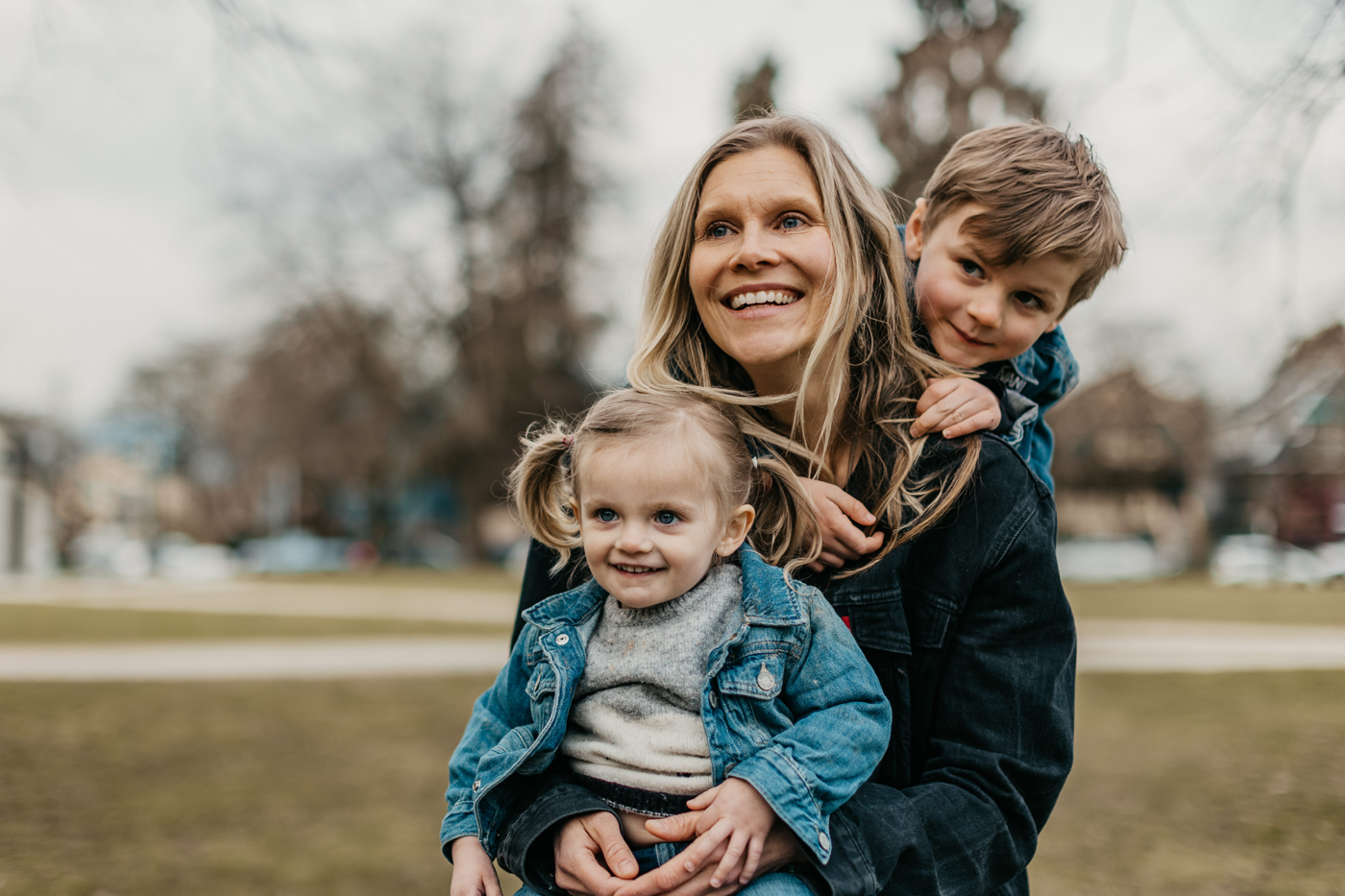To support blood cancer research, contact Elissa Ming Morrissette at 604.707.5992 or elissa.morrissette@bccancer.bc.ca.
Opening Thoughts
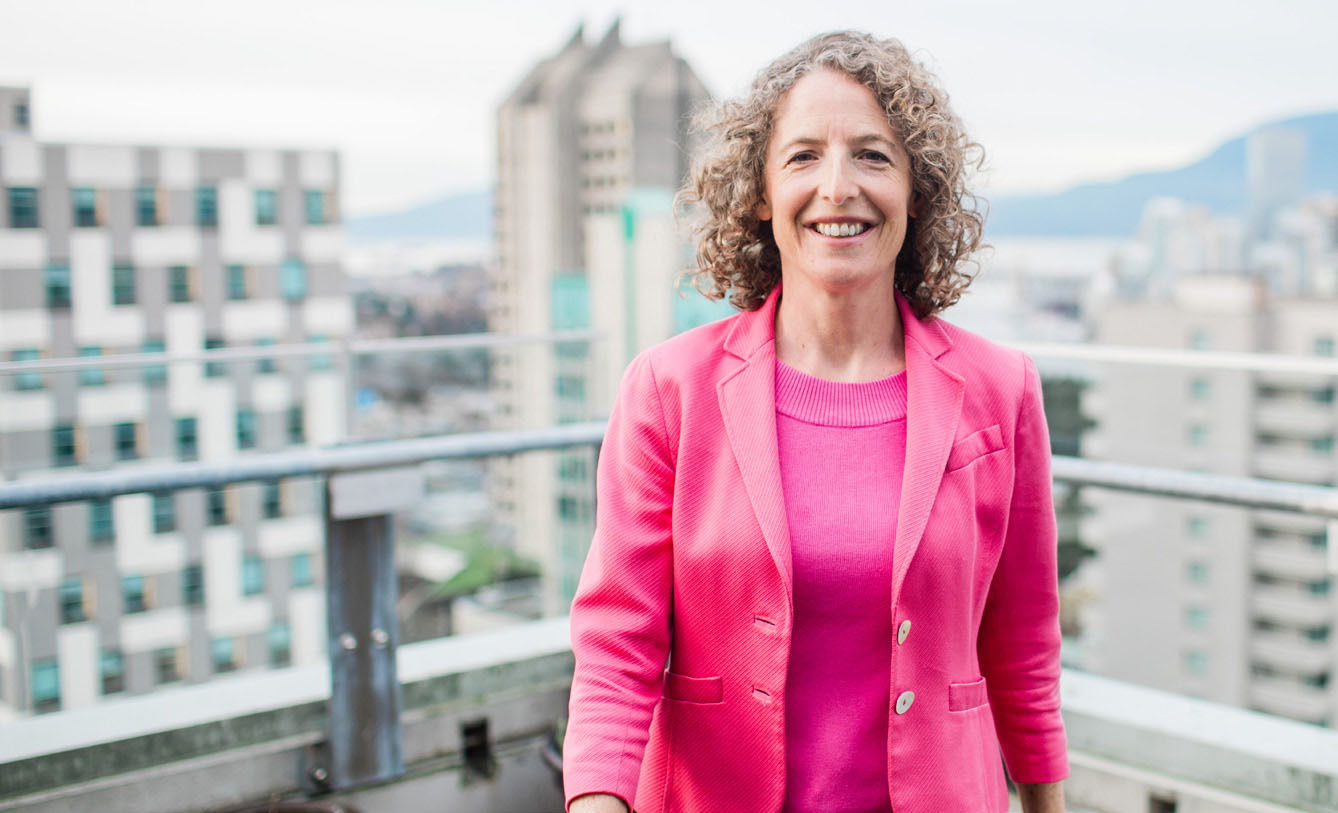
Sarah Roth, President & CEO, BC Cancer Foundation
Few of us could have imagined back in the beginning of the pandemic that we’d pass the grim milestone of two years impacted by COVID-19. The virus has taken a devastating toll — the lives of approximately 3,000 British Columbians to date. However, for 80,000 people in our province, cancer is a much more pressing health concern. We lost more than 11,000 of our loved ones to the disease last year alone.
We know, now more than ever, that science matters. Vaccines went from discovery to distribution in under a year, made possible by an unprecedented global mobilization and investment in research. When you donate to BC Cancer Foundation you’re fuelling life-saving research that wouldn’t happen otherwise.
Every new therapy and treatment is born in a laboratory. Hilary Stevens and Allan Collings know the long-term rewards of an experimental new drug, and are giving back with an incredible $1 million donation to the BC Cancer lab which now bears their name. Tara Sawatsky is undergoing a surgery, developed by our very own Dr. Dianne Miller, which will greatly reduce her risk of ovarian cancer. And with the recent appointment of a research chair, made possible by the late Gordon Shrum, BC Cancer Chief Medical Officer Dr. Kim Chi continues to make impressive contributions to prostate cancer discoveries.
As we look towards a brighter future of living with, if not free from, COVID-19, it is my deep hope that one day the same will be true of cancer. I truly believe we can get there.
Sincerely,
Sarah Roth
President & CEO
BC Cancer Foundation
Creating Room for Research
“Do you know what he calls his medication?” asks Hilary Stevens of her husband Allan Collings’ daily chemotherapy pill. “His Life Savers!”
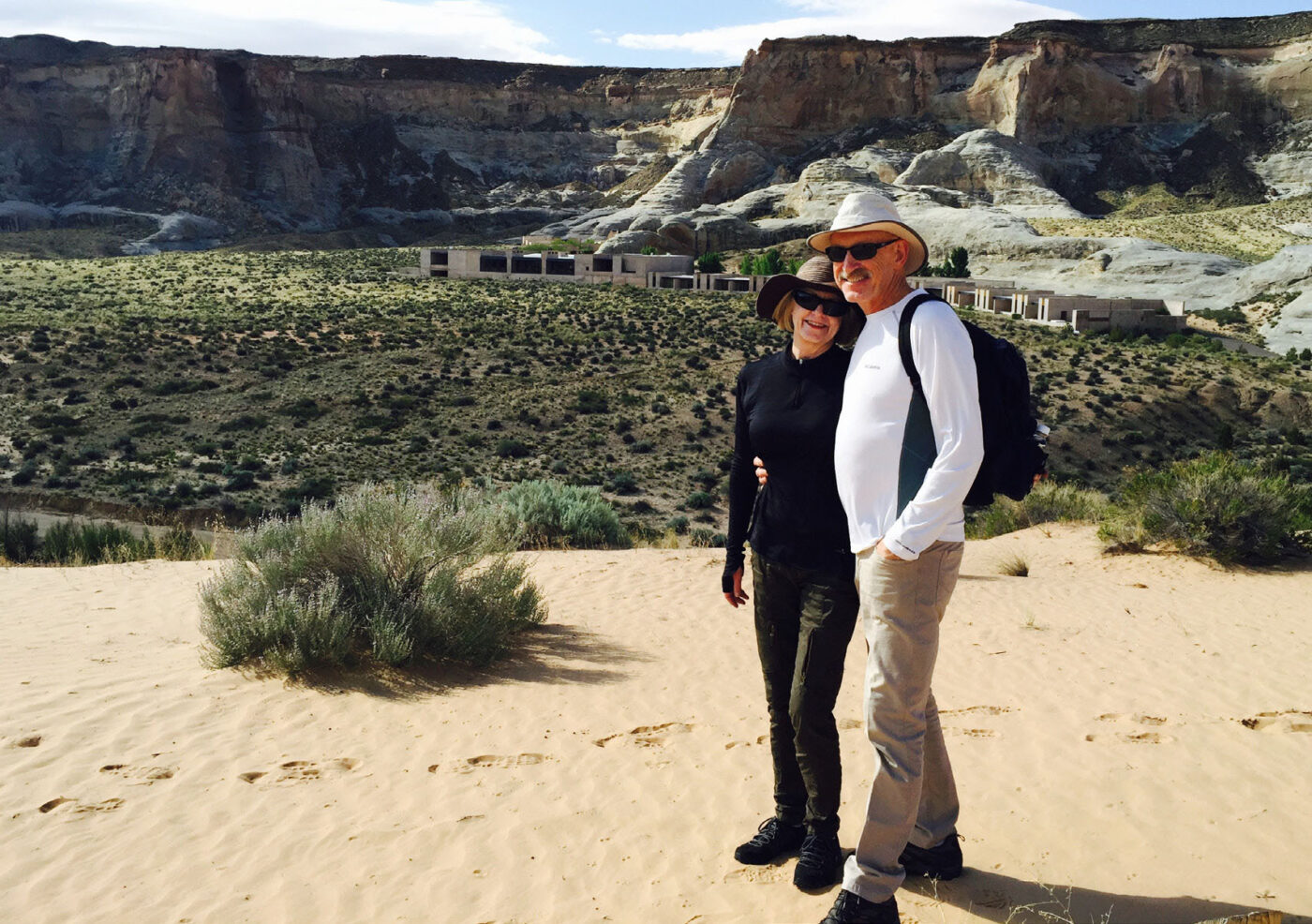
Hilary Stevens and Allan Collings
Allan explains, “When I was a kid I used to love Life Savers. So now I get to have my candy every morning.” Which is made all the more sweet by the fact that the treatment has him in remission after a chronic myeloid leukemia (CML) diagnosis in 2017.
“When you’re told you have blood cancer, the first question that comes to mind is, ‘How long have I got?’” says Allan. Almost five years later, he and Hilary are incredibly grateful that a daily dose of Imatinib (Gleevec) has worked miracles. However, they know not everyone is so lucky. “More research is needed to help people that are not as fortunate, for whom the existing medications are not as effective,” says Allan. “We need to find better solutions for these people.”
Hilary and Allan donated $1 million to support critical research into CML led by Dr. Xiaoyan Jiang, a Distinguished Scientist at BC Cancer. This helped Dr. Jiang and her colleagues, including Dr. Florian Kuchenbauer and Dr. Connie Eaves, to establish a Preclinical Therapeutics Unit (PTU) at BC Cancer, where they are examining new treatments in patient models. By identifying new drugs, predictive biomarkers and treatment strategies, this work will have a significant impact for CML patients in B.C. and beyond. In recognition of this generous donation, Dr Xiaoyan Jiang’s lab will be renamed the Collings Stevens Chronic Leukemia Research Laboratory.
“It’s an honour to have our names associated with this new research undertaking and the incredible people that work in this lab,” says Hilary of the space within the Terry Fox Laboratory (which is marking 40 years of ground-breaking research this year) at BC Cancer’s L.J. Blackmore Cancer Research Centre. “With the collective intelligence in that lab, we’re really optimistic that they’ll make some great discoveries,” adds Allan.
Benefactors to several other causes, the donation to BC Cancer is the largest health-care gift to date for the Collings Stevens Family Foundation. A significant nod to Hilary and Allan’s deep belief that research is crucial to creating better cancer outcomes.
“People think that the government is funding all of the necessary research, but that’s not necessarily the case. We hope to inspire and encourage other individuals and families to help out,” says Hilary.
Allan agrees, urging baby boomers who have benefitted from a fantastic medical system their entire lives to support young scientists in finding creative new solutions. “We have what are called the learning years, then the earning years and then the giving years,” he says, “but we’re still learning, we’re still earning and it’s now time for us to invest in a better future for those less fortunate.”
Allan says it wasn’t that long ago that Imatinib — also called the “magic bullet” for its ability to erase cancer in some, but unfortunately not all, CML patients — was an experimental new cancer drug. He tries not to imagine what would have happened if that study hadn’t had the necessary financial backing, focusing instead on supporting the next big breakthrough. One that just might come out of the lab that now bears the Collings Stevens name.
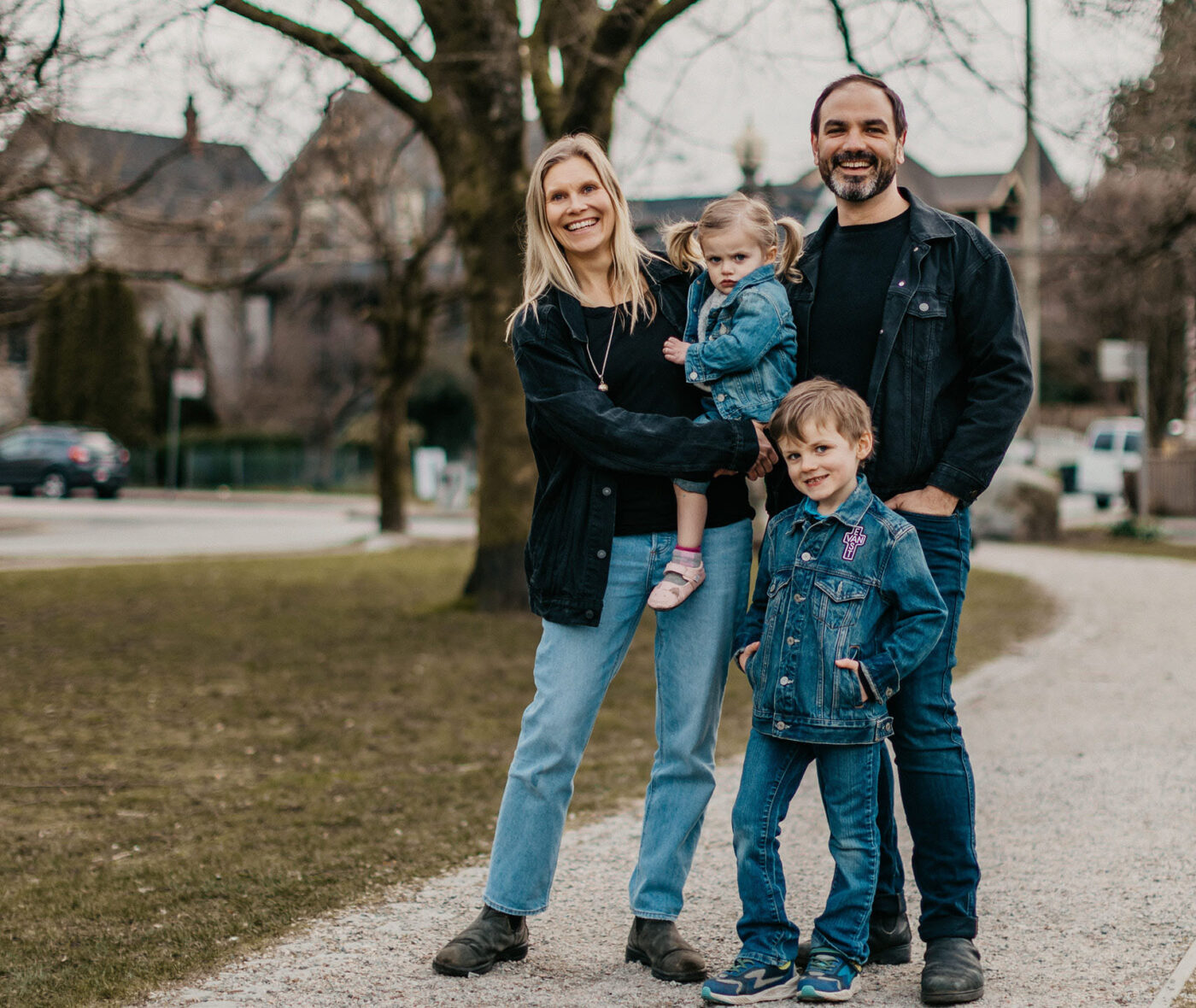
Cancer Cure Comes Full Circle
News footage from the mid-’90s shows Millie Sawatsky, petite with a blonde pixie cut and wearing a mauve sweater, walking down a hospital hall, chatting optimistically with Dr. Dianne Miller. The CBC story was about an experimental drug, Taxol, a “bright new hope” for ovarian cancer. It’s some of the last images Tara Sawatsky has of her mom — Millie passed away a little less than a year later.
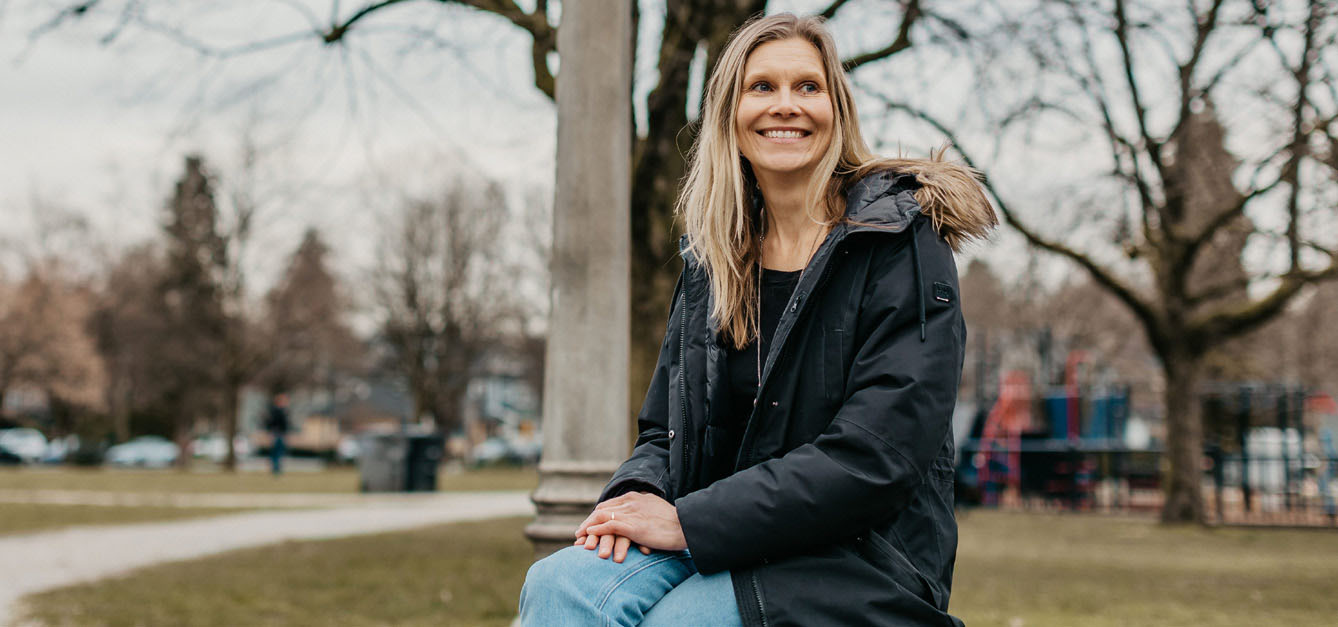
Tara Sawatsky
“My dad still speaks so highly of Dianne and the treatment she provided my mom,” says Tara, who was 14 when she lost her mom to a cancer that continues to have a five-year survival rate of less than 50%. Dr. Miller is renowned as someone who treats people, not patients. With an affectionate bedside manner, there’s a good chance she wrapped her arms around Millie. But Tara has another reason to thank her mom’s oncologist.
Now a mom herself, Tara is undergoing an opportunistic salpingectomy (OS), a surgery to remove the fallopian tubes as a preventative measure for ovarian cancer — conceived by none other than Dr. Miller.
As co-founder of BC Cancer’s ovarian cancer research program OVCARE, Dr. Miller developed OS (now adopted around the world) after discovering most ovarian cancers start in the fallopian tubes, and not, as previously believed, on the ovaries. Akin to a vasectomy, the laparoscopic surgery, often performed instead of what is commonly known as “having your tubes tied,” has the added benefit of significantly reducing ovarian cancer risk.
Neither Tara nor her mom (amazingly, Tara tracked down her mom’s tissue through BC Cancer’s Hereditary Cancer Program) tested positive for a BRCA gene mutation, signalling a greater risk of cancer. However, Tara’s genetic counsellor suggested OS as a preventative measure anyway.
“We have two beautiful children, ages two and five, and we don’t want any more kids. Realizing this could also reduce my cancer risk, I thought, ‘Why not?’ As I approach the age that my mom was when she died — I’m 42 now, she was 44, it was the week before she turned 45 — it provides me with hope that I can be there for my kids growing up. I know how hard it was not to have my mother with me all of these years.”
Tara says she owes much of who she is to her mom, whose love of the outdoors led her to study environmental science, and pursue a career with Fisheries and Oceans Canada.
“She was also an amazing musician, and spent hours with me while I practiced the violin.”
Another gift Tara appreciates was her mom’s participation in that study 28 years ago. Taxol couldn’t save Millie, but it’s now used to treat a number of different cancers. That research saved lives, and likely informed other breakthroughs. Perhaps even the surgery Tara is waiting to mark in her calendar.
“I feel privileged to have that connection to Dr. Miller. I appreciate her commitment; it’s really amazing what she’s done for women.”
If the circle wasn’t already full, Tara’s husband Kevin Sauvé ended up taking a job in research at BC Cancer. At Tara’s family’s urging, he reached out to his new colleague, Dr. Miller. “I said, ‘You don’t know me, but you were an oncologist for my wife’s mother, Mildred Sawatsky,’” recalls Kevin. “Dianne immediately responded, ‘I remember Millie! Tell Tara I said hello.’”
To support ovarian cancer research and care in B.C., contact Fatima Hassam at 604.877.6226 or fatima.hassam@bccancer.bc.ca.
Finding Strength Through Support
A Mountie for 28 years, Don Helgeson put aside his motto to “always get his man,” in order to tell cancer it picked the wrong guy.
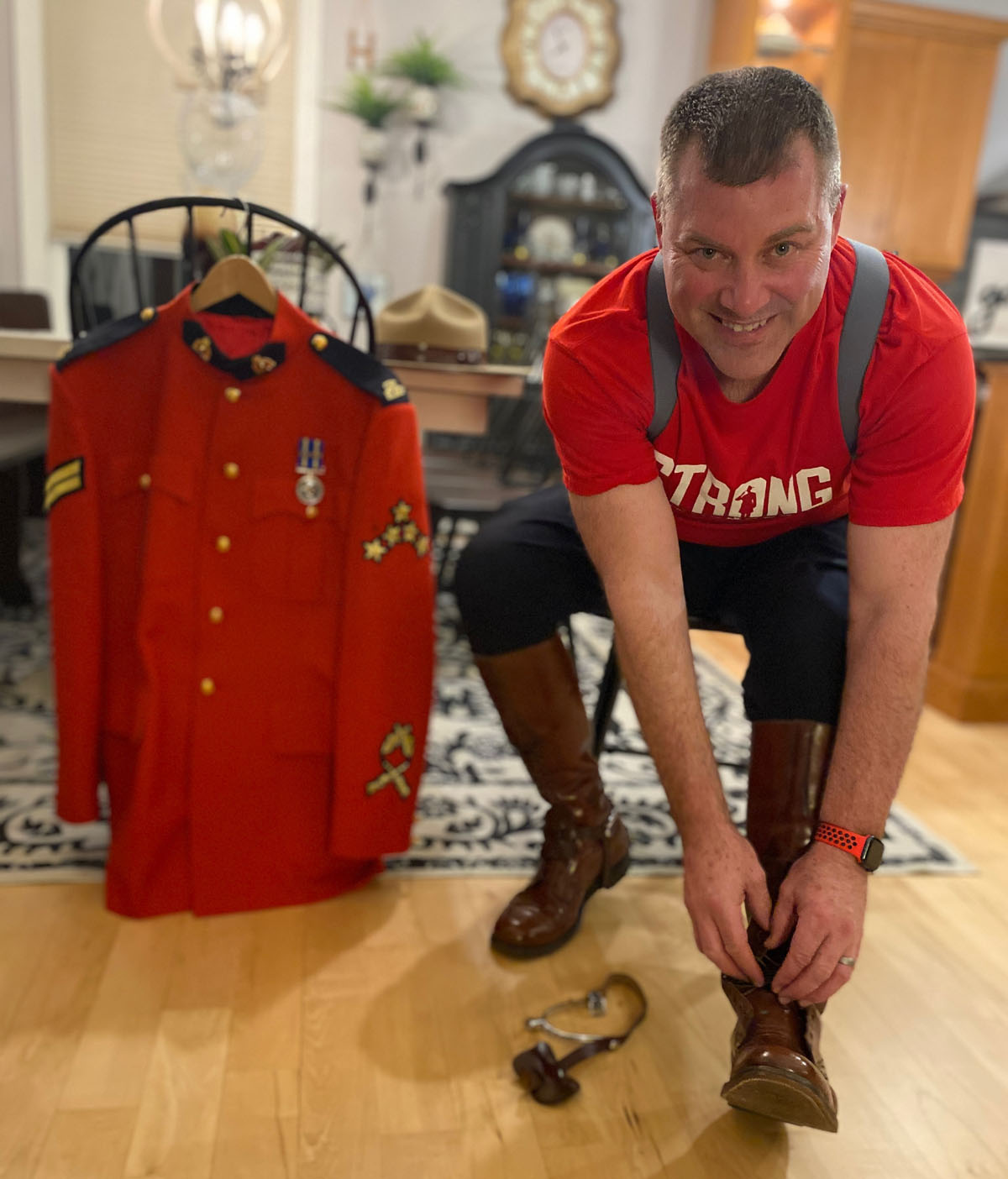
Don Helgeson
A prostate cancer diagnosis at age 51, which led to early retirement from the RCMP, was not the first brush with cancer for Don. The Nanaimo native lives with Lynch Syndrome, which puts him at higher risk of certain cancers — he was previously diagnosed with melanoma at 27 and colon cancer at 37.
But in 2020, when online results from routine blood work (something his uncle who died of prostate cancer insisted he stay on top of) showed abnormally high prostate-specific antigen (PSA) levels, an indicator of prostate cancer, it hit him hard.
“I was devastated. I had already survived two cancers, how much time did I really have left? I sat on the couch with my mind spinning. I needed to talk to someone,” Don says.
With his wife Lisa at work he called a good friend and tearfully told him his worries. It was the first of many times Don would lean on other men for emotional support during his prostate cancer journey.
He connected with two more allies, both diagnosed with prostate cancer in their 50s (which is rarer, as the disease usually affects men in later years), on the Facebook page “Man Up to Cancer” — a safe space for men to seek support and prevent the feelings of isolation, which are all too common).
“Belonging to a group where you can bounce questions off an actual person, and not the Internet, is invaluable,” says Don, who quickly realized he also had a lot to offer other young men with prostate cancer. Namely his openness to speak about the good, the bad, and even the embarrassing: incontinence and erectile dysfunction.
Both of which Don experienced after a radical prostatectomy (the removal of the prostate gland and surrounding tissue). The decision to get the surgery, and risk those side effects, was a tough one, says Don. But the other two options, active surveillance and radiation, weren’t ideal given his Lynch Syndrome, age and his cancer’s advanced stage.
On his Facebook page, website (www.prostatecancer51.com), and soon to be launched podcast, Don doesn’t shy away from subjects that don’t normally roll off most men’s tongues, like the benefits of Kegels (bladder strengthening exercises usually done by pregnant women) or the pitfalls of buying cheap incontinence underwear. He even jokes about it, “Watch out for unexpected sneezes!”
While Don wears his heart on his sleeve, a self-designed t-shirt on his chest queries, “What’s your PSA?” And he’s only too happy to stop and talk about it with anyone who asks. “Being recently retired, I have a fair bit of time on my hands,” he laughs.
An advocate for early detection, Don cautions men against thinking they’re too young, fit or manly to get tested. He regrets turning down the digital rectal exam — another method of detecting possible prostate cancer — during his own physicals for those reasons. “It’s not a big macho thing to say no to getting tested. Get it done, it’s nothing. It could save your life.”
From Sea to Sea to Save Lives
Twenty days, 5,712 km, 33,710 metres in elevation, 261 hours in the saddle, 22 flat bike tires, one bloody nose — and over $50,000 raised for ovarian cancer research.
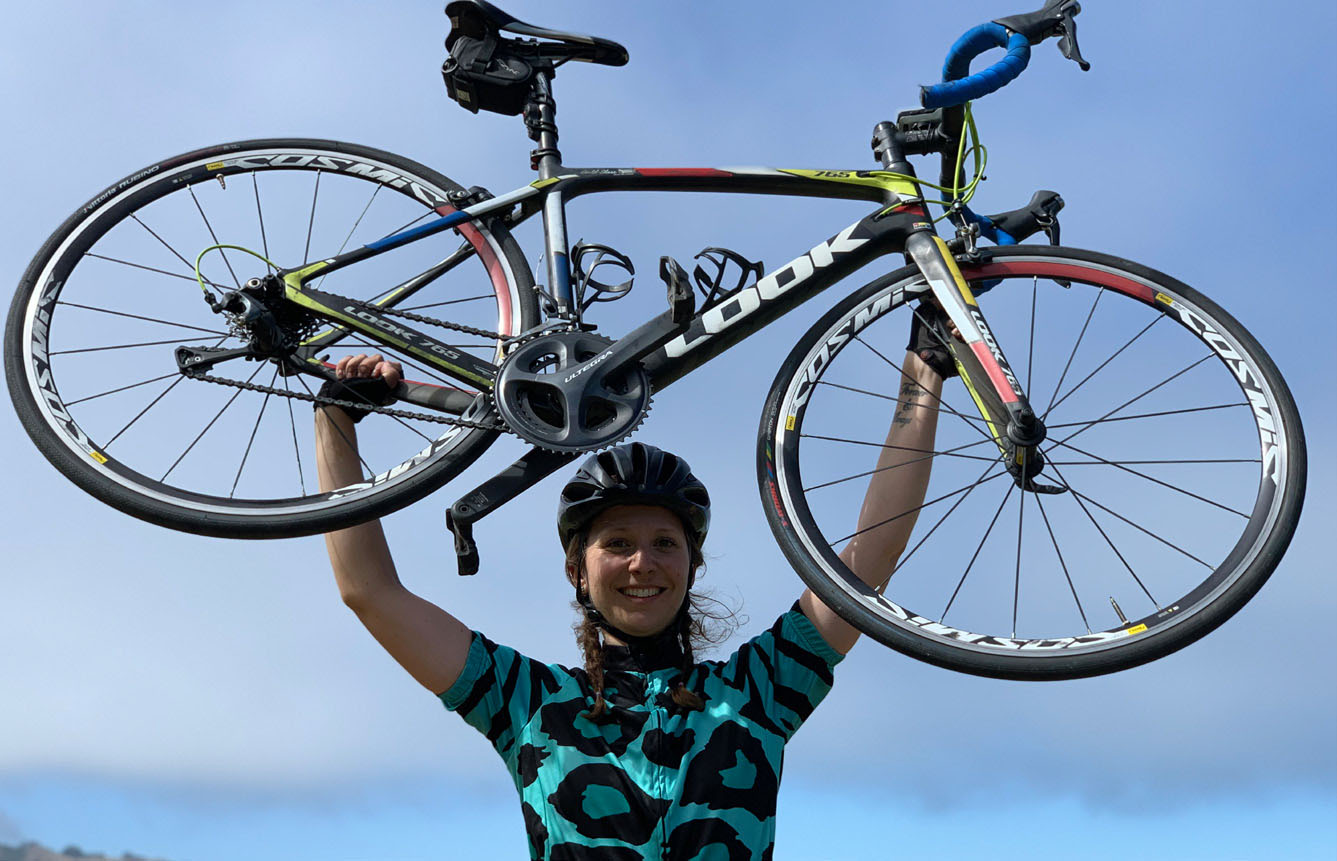
Bianca Hayes
Despite the obstacles of that challenging fundraising bike ride, Bianca Hayes decided she would do it again in a heartbeat. And this June she intends to, with a second cross-country ride — from Vancouver to Halifax — to beat her 2020 record of the fastest woman to cycle across Canada. This time, she hopes to finish in 15 days (setting the women’s Guinness World Record) and raise $500,000 for the BC Cancer Foundation.
“Each loss to ovarian cancer leaves a hole in a family,” says Bianca, who feels the void left by her fierce-witted and fiery-haired sister, Katrina, 32, who passed away in 2018 in the midst of young motherhood.
“Katrina was confident in who she was, and what she wanted. I always admired her for those traits, and since her death I have been trying to embody them,” says Bianca, who overcame Crohn’s disease and rheumatoid arthritis to complete a handful of epic rides to fuel research in ovarian cancer.
“It’s a way for me to make some sense of Katrina’s death. To prove to myself, and anyone else who doubts themselves, that we are capable of much more than we think.”
Ovarian cancer is often diagnosed in the advanced stages when treatment is less likely to result in a cure. Donate to support critical research to help change this at biancahayes.com.
Honorific Donation Propels Prostate Cancer Research
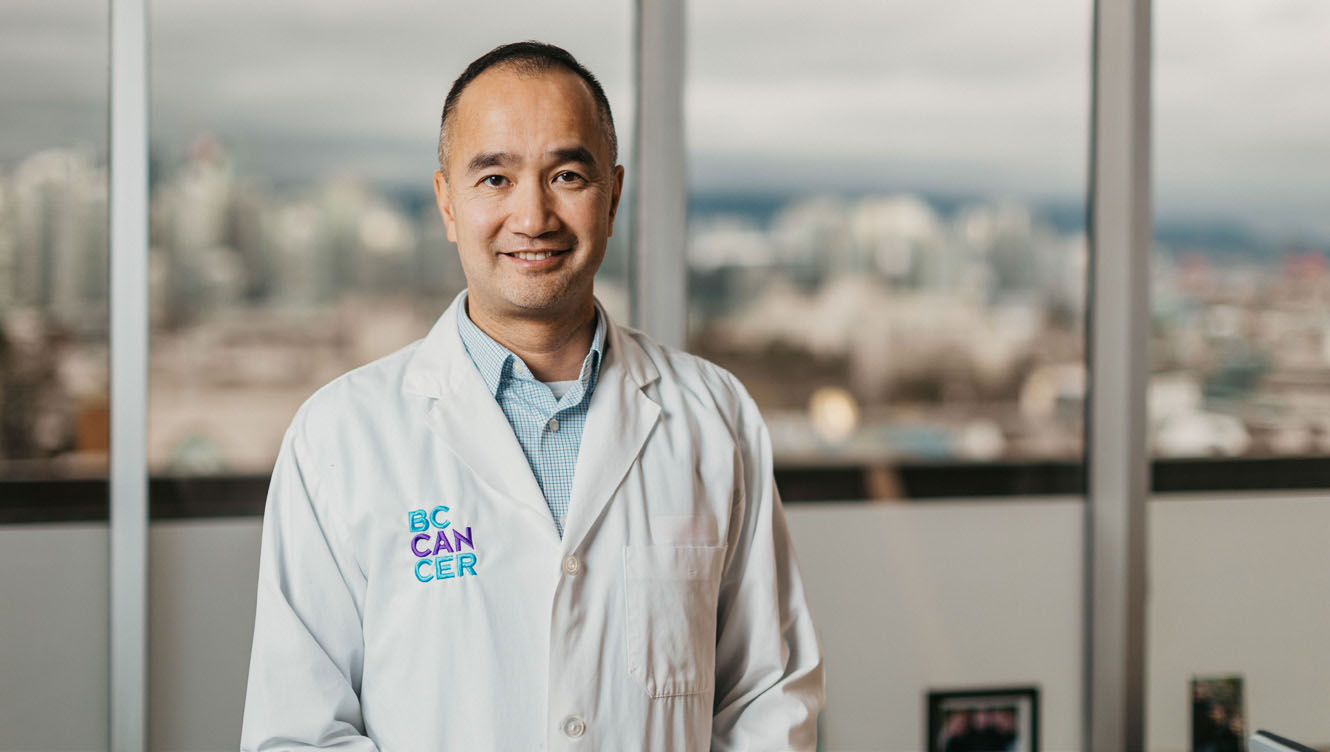
Dr. Kim Chi
Dr. Kim Chi can add the Shrum Chair in Applied Genomics Research for Prostate Cancer to his list of titles and accomplishments, which includes Vice President and Chief Medical Officer, BC Cancer, medical oncologist and senior research scientist. The chair, made possible by the late Gordon B. Shrum’s generous philanthropy, provides $6 million in research funding across 10 years.
“Mr. Shrum was an inquisitive, accomplished and generous man, so I am very pleased to have been appointed to the chair named in his honour and memory,” says Dr. Chi. “The chair will help me continue my work in prostate cancer research and find new ways to treat the disease.”
In addition to giving Dr. Chi protected time to pursue new prostate cancer research, the chair will also help him to foster and grow a skilled team of research-focused medical oncologists and data analysts to fully support each research project. The funding has helped to establish and continue a biobank and database of patients with advanced prostate cancer across B.C. who provide clinical information, blood samples and prostate cancer specimens.
“With this biobank and database, we are studying and discovering why some cancers are more aggressive than others, and with that data, we can design more personalized treatment strategies.”
This project is just one of many that Dr. Chi and his teams are pursuing, including a blood-based test that can identify whether individuals with metastatic (advanced) prostate cancer have alterations in key genes that repair DNA.
“Having an alteration in one of these genes means that they may have inherited a susceptibility to prostate cancer, and passed that gene onto their children. Right now the test is available to patients through a program run by AstraZeneca, but we hope to have public funding available in the future.”
To support prostate cancer research and care in B.C., contact Rhea Siu at 604.877.6157 or rhea.siu@bccancer.bc.ca.
Big Steps for Culture and Cures
“Gilakas’la” is the most common word in the language of the Kwakwaka’wakw First Nations, whose territory includes northeastern Vancouver Island. It originally meant “I share my breath and spirit with yours.” Today it’s used to say “hello,” “thank you,” and “you’re welcome.”
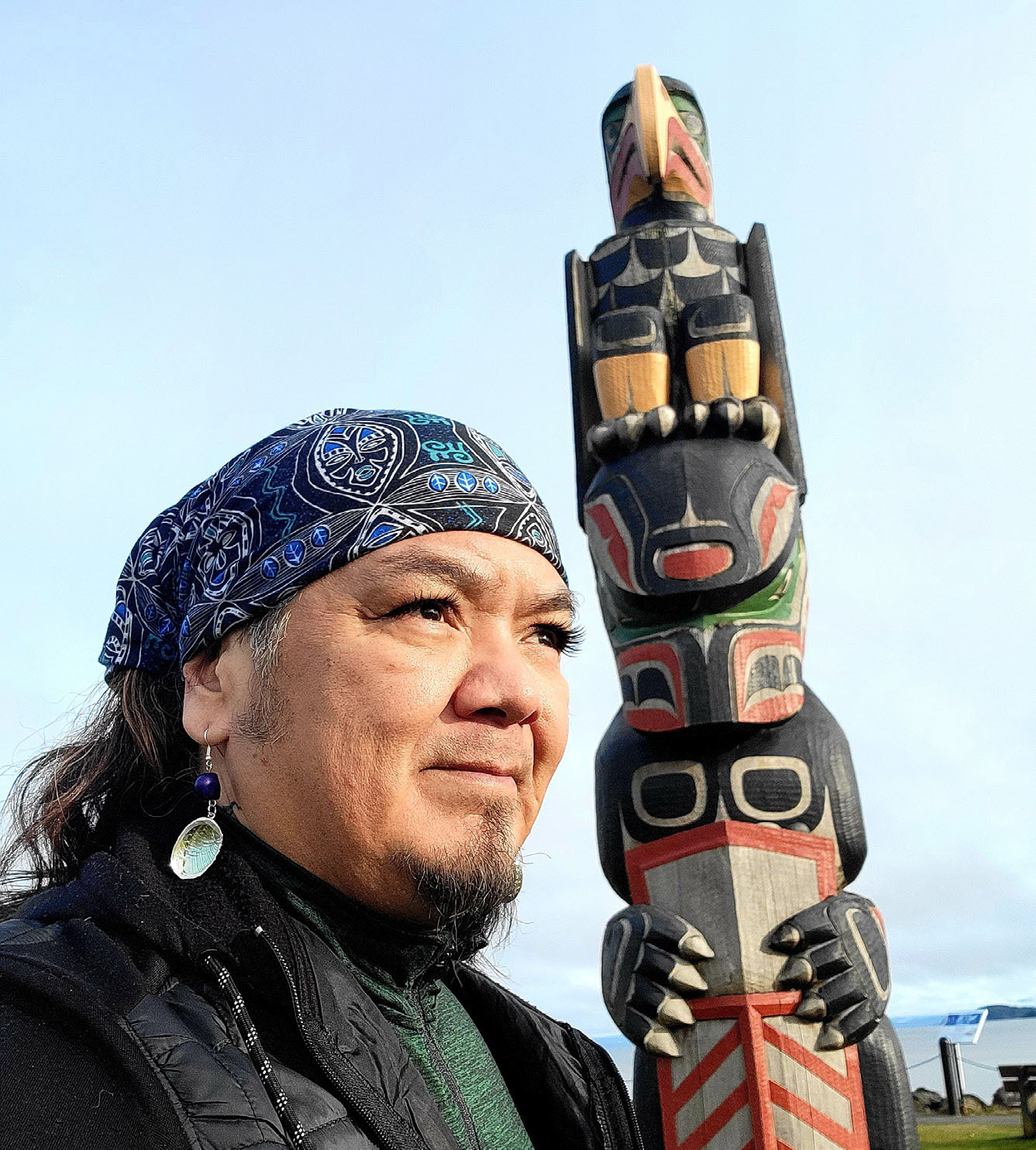
Thomas Wamiss
It’s fitting that it’s the first greeting on Thomas Wamiss’ BC Cancer Foundation fundraising page (for a walk that has him leaving his home in Port Hardy on June 18 and traversing over 500 km to Victoria) — as the journey itself has multiple meanings.
Thomas lost two brothers to cancer. Jeremy to prostate cancer 24 years ago and Charlie just over a year ago. As the youngest of seven, Thomas looked up to them both growing up.
“I had many role models who guided me through life in an abundantly happy home,” Thomas says. “However, we also had our bad times of sorrow, pain, frustration, embarrassment, insecurity, anger and defeat. I am of the first generation that did not go to a residential school. All of this leading, of course, to my addiction to drinking.”
On Sept. 15, 2020, Thomas decided to “get out of the darkness” and seek sobriety. Once his mind and spirit were in a good place, he realized his body was out of shape. And so he started walking. “In four months I lost over 40 pounds — at 49 years old,” he proudly says.
With his energy levels at an all-time high Thomas thought, “What am I going to do with all this?” His brothers immediately came to mind. Jeremy had been a pillar in the Port Hardy community, responsible for bringing sport (volleyball and hockey) to the Quatsino band.
“However, being the Wamiss that he was — we’re pretty stubborn about doctors — he neglected his care without thinking about the consequences. But cancer doesn’t wait, and so it took him.”
Thomas wants to use the walk to create awareness, especially among First Nations, about the importance of cancer screening, early detection and treatment. And he plans to do it in the Kwak’wala traditional tongue in order to save lives, and the survival of his native language.
He’ll have plenty of time to have those conversations. He estimates his shortest day of walking to be eight hours, his longest 15, at least according to Google maps. “But I’ve been telling people I’m older (and wiser) than Google so I’m going to prove it wrong,” he laughs.
Port Hardy has rallied around Thomas. The Applewood Ford dealership is providing a pilot car, other local businesses have donated raffle prizes, and many people have pledged to walk beside him.
This coming together for the common good was also part of Thomas’ plan, he says. “It takes a community to raise a child. We seem to have lost that, the understanding of how important we all are.”
In the end, it doesn’t matter what language you speak, or what shade your skin is, he says. “Cancer is not racist. It attacks everyone equally.” Thomas plans to stand up to it — one step at a time.
Donate to help Thomas fuel cancer research and cures at bccancerfoundation.com/sobrietywalk.
Creating a New Path

Collette Tan
Colette Tan was always interested in art, but she never imagined it would have such an important role in her life.
It began in 2018. Colette isn’t sure what caused her to give herself an exam that day, but she calls it a divine intervention — she found a lump. It was breast cancer, and it had spread.
Throughout treatment, Colette found solace in faith through art. She saw the donated paintings in BC Cancer – Vancouver, and it sparked something in her. She recognized the power of art in giving people hope.
“In September 2020, I realized I was being called to be an artist. I had an urgency to fulfil this purpose, and I asked myself ‘Do I jump back to my old life, or say yes to this new calling?’”
She decided to say yes.
Colette began painting in her kitchen. She knew no one in the art world in Vancouver, but in March 2021 she stumbled upon her current studio, and as she says, “the rest is history.”
A year later, Colette has now blossomed as an artist. She attributes her cancer journey as playing a major part in leading her to find her purpose.
“Receiving my diagnosis and going through cancer woke me up. I thought I wasn’t going to make it,” Colette says. “I am so thankful I get to show the beauty of life and hope through my art, despite the pain and challenges we face.”
Colette is eager to donate some of her own artwork to BC Cancer, in hopes of inspiring others the way she was.
To support breast cancer research and care in B.C., contact Rhea Siu at 604.877.6157 or rhea.siu@bccancer.bc.ca.
Riding to Remember His Father
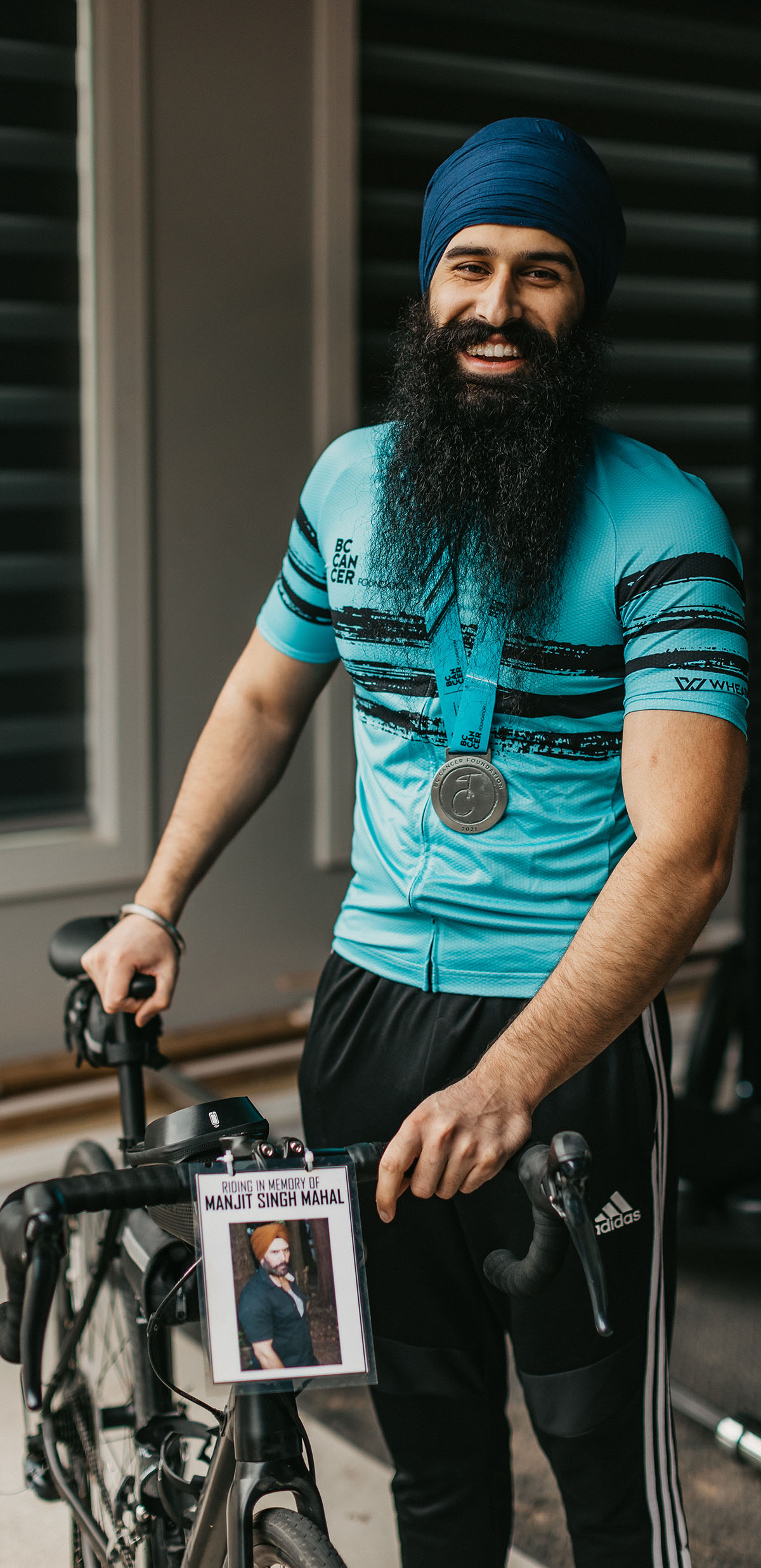
Gurjodh Mahal
Gurjodh Mahal’s father Manjit Singh Mahal was known for his positivity, even in the face of his unexpected late-stage colon cancer diagnosis.
Although Manjit passed away a few weeks after he was diagnosed, during his short cancer journey he never lost his optimistic outlook.
“You could always find my dad smiling and making his usual jokes, and that spoke volumes to the person he was, and the strong character he had,” Gurjodh says.
Gurjodh wanted to honour his dad by making a difference for other families, and along with his own family, he sought out ways to support cancer research, including the Tour de Cure.
Manjit had always stressed the importance of volunteering and physical health. Gurjodh felt that the Tour de Cure would be a fitting way for family and friends to remember Manjit and carry on his legacy, while making a positive difference in the community.
“The Tour de Cure is an excellent way to channel the hopelessness you feel during a loved one’s cancer journey,” Gurjodh says. “It allows you to make a difference, supporting BC Cancer’s ability to provide quality care, treatment and research.”
Gurjodh is once again riding his bike this year in honour of Manjit on Team KPMG.
“Although my father passed away in a short period of time, I can confidently say he lived life to the fullest. He left us with many fond memories and will continue to live on in our hearts.”
Tour de Cure presented by Wheaton Precious Metals returns this year with an in-person cycling experience. Learn more at tourdecure.ca.
